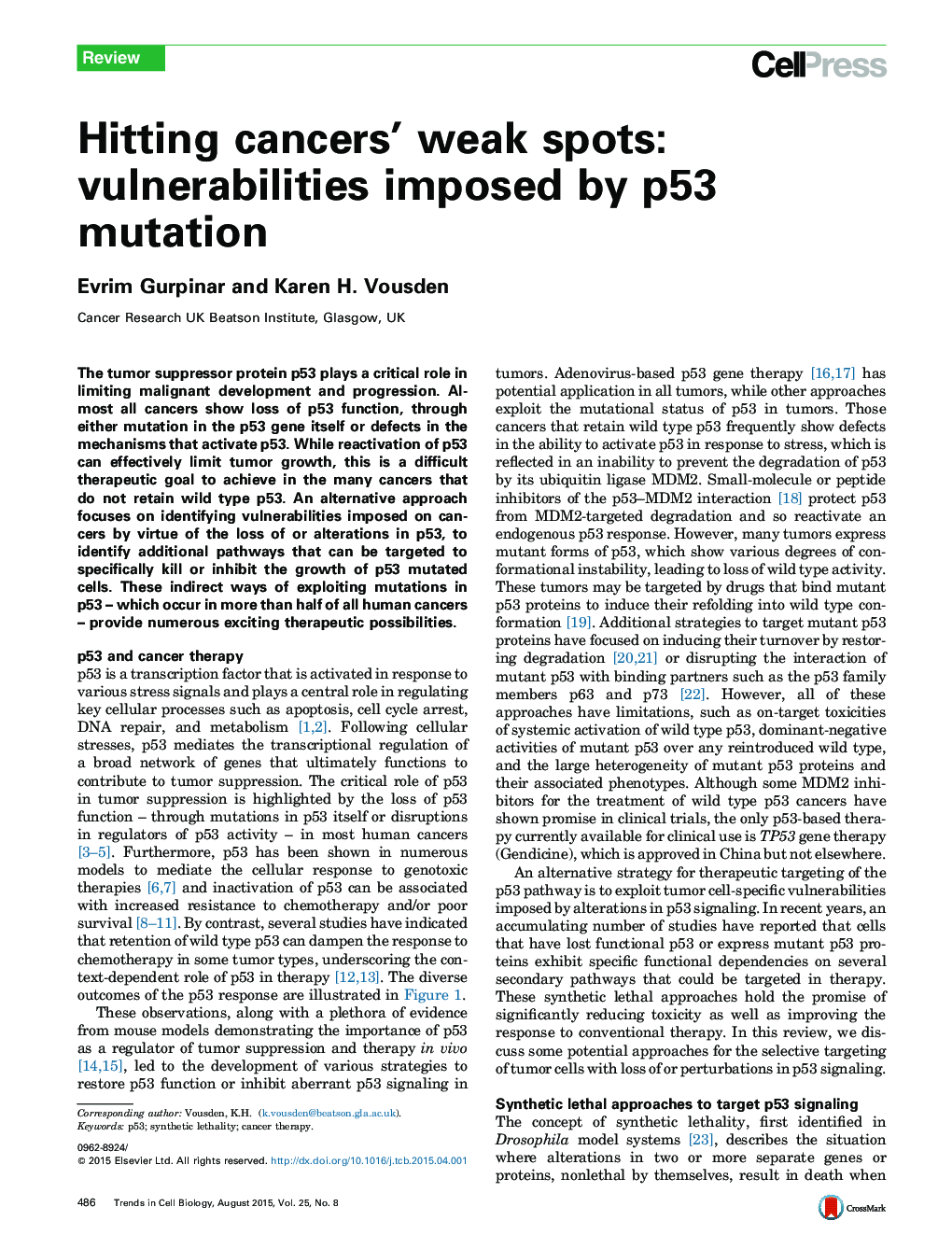| Article ID | Journal | Published Year | Pages | File Type |
|---|---|---|---|---|
| 2204316 | Trends in Cell Biology | 2015 | 10 Pages |
•The tumor suppressor p53 is inactivated in most human cancers.•Loss of p53 function creates specific vulnerabilities in cancer cells.•Expression of mutant p53 renders cancer cells dependent on downstream pathways.•Synthetic lethality could be used to specifically target cancer cells with p53 defects.
The tumor suppressor protein p53 plays a critical role in limiting malignant development and progression. Almost all cancers show loss of p53 function, through either mutation in the p53 gene itself or defects in the mechanisms that activate p53. While reactivation of p53 can effectively limit tumor growth, this is a difficult therapeutic goal to achieve in the many cancers that do not retain wild type p53. An alternative approach focuses on identifying vulnerabilities imposed on cancers by virtue of the loss of or alterations in p53, to identify additional pathways that can be targeted to specifically kill or inhibit the growth of p53 mutated cells. These indirect ways of exploiting mutations in p53 – which occur in more than half of all human cancers – provide numerous exciting therapeutic possibilities.
